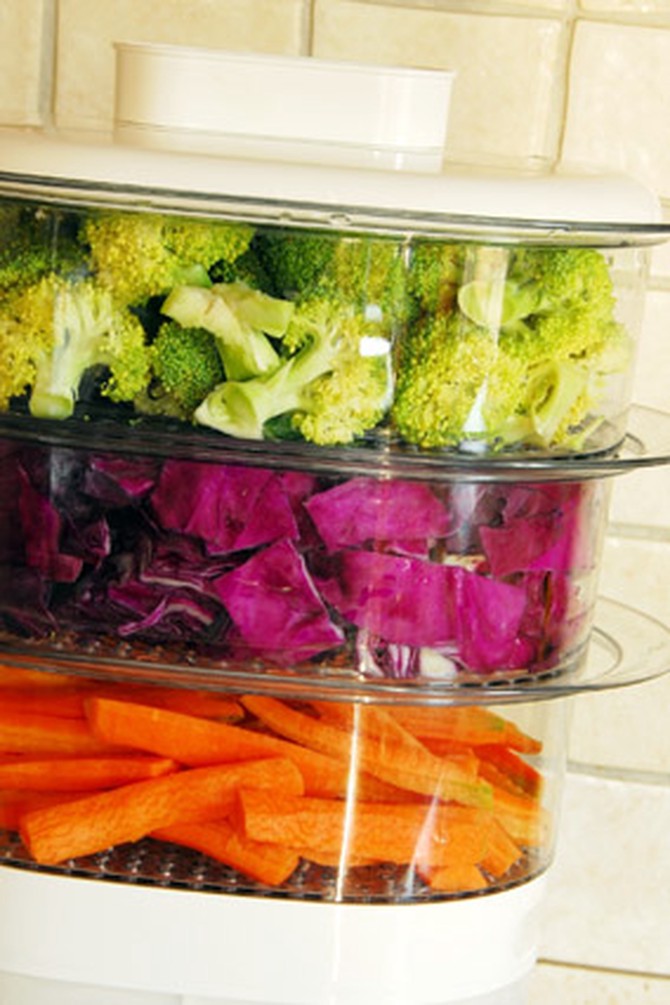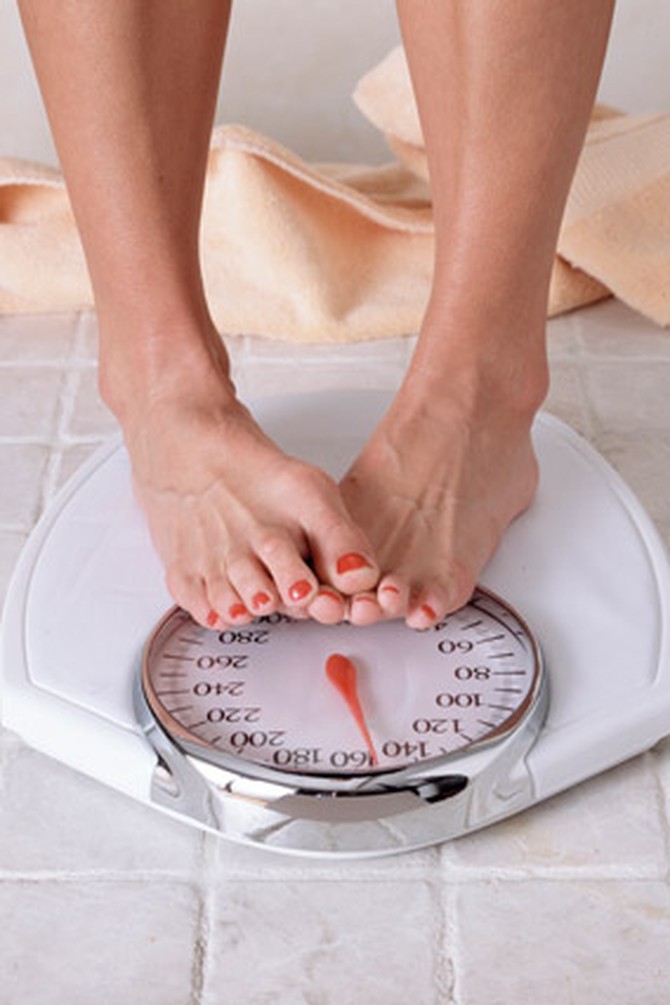8 Surprise Reasons You're Still Tired
Are you dragging through your days even though you get eight hours at night? Here's what could be affecting you.
By Corrie Pikul

Photo: Thinkstock
You Forgot Your Water Bottle at Home
Even mild dehydration (1.36 percent loss of normal water volume in the body) can slow your mental gears and make you feel woozy, concluded the authors of a study published last year in the Journal of Nutrition. But the sensation of thirst doesn't usually kick in until you're about 1 or 2 percent dehydrated, so a dry mouth isn't a reliable gauge. In addition to drinking plenty of water, you can stay hydrated by snacking on raw fruit and vegetables, yogurt or soup.

Photo: Thinkstock
Your Thyroid Has Turned into a Slacker—or an Overachiever
You know the connection between fatigue and hypothyroidism, when an underactive thyroid doesn't produce enough metabolism-regulating hormones, so you may already be on the lookout for an unexplained weight gain and a slower-than-average heart rate. But you can also feel wiped out by hyperthyroidism, the opposite condition, says Sandra Fryhofer, MD, an Atlanta internist and past president of the American College of Physicians. "Your body is so revved up from the hormones that you end up feeling exhausted," Fryhofer says. An estimated 1 in 8 women will develop a thyroid disorder at some time, according to the American Thyroid Association, so talk to your doctor about tests that measure the amount of thyroid-stimulating hormones in your blood.

Photo: Thinkstock
You've Gone Vegan...
Vitamin B12 is necessary for the growth of red blood cells. This energy booster comes mainly from animal products, but if you've given up meat and fish as well as eggs and dairy, you're at high risk for deficiency, Fryhofer says. In addition to feeling run-down and weak, you may also notice that you have pale skin that bruises easily, a sore tongue, bleeding gums and an upset stomach. A blood test can tell you for sure if your B12 levels are low. In the meantime, look for supplements with 100 percent of the recommended daily value of B12 and try to eat fortified cereals as well as nutritional yeast.

Photo: Thinkstock
...or You're a Meat Lover (Who's Still Surprisingly Anemic)
Ten percent of women are iron deficient, and half of those will develop anemia. When red blood cells aren't able to deliver enough oxygen to all the cells in the body, we feel fatigued, weak and irritable. You've probably heard that you can become iron deficient by not eating enough red meat, but that's only part of the story, says Nancy Berliner, MD, chief of Hematology at Boston's Brigham and Women’s Hospital. The most common cause of iron-deficiency anemia is blood loss, usually because of heavy periods or childbirth, and even a steady hamburger habit can't compensate for that. Distance runners are also at risk, Berliner says, because the repetitive impact on pavement can cause red blood cells to be damaged or even destroyed. If a blood test shows red-blood-cell count is too low, your doctor will probably prescribe iron supplements. (Berliner suggests 325 mg, two to three times per day.)

Photo: Thinkstock
You're Taking This Type of Non-Drowsy Medication
You usually pop your all-day allergy pill as soon as you get up, believing the manufacturer's promise that you'll be symptom-free until bedtime. And you will —but while your head will feel clearer, it may also feel heavier, and you'll find it hard to stay awake. This is because antihistamines—even "nondrowsy" or non-sedating versions —can make people sleepy, says Sakina Bajowala, a board-certified allergist and immunologist with a private practice in North Aurora, Illinois. She advises taking your 24-hour-action pill at bedtime. You'll sleep off the immediate drowsy side effects, and the meds will continue to keep you sniffle-free throughout the next day.

Photo: Thinkstock
You're Overdosing on Caffeine in the A.M
Do you start every morning with a coffee mug the size of a soup bowl? This will certainly wake you up but will also set you up for an afternoon crash. Instead, try sipping smaller amounts throughout the day. Researchers at Harvard found that quarter- or half-cup doses can help give you a more consistent level of alertness, without the spikes and plunges.

Photo: Thinkstock
You Had Pancakes for Breakfast (or Dinner)
This meal is full of traps: The refined carbohydrates in the pancakes, the syrup (or powdered sugar, if you eat them like the Germans do) and the glass of OJ can create steep spikes in blood sugar that leave you feeling sluggish and slow when they plunge a few hours later. This doesn't mean you need to skip the flapjacks forever—just make them with whole wheat or buckwheat flour instead.

Photo: Thinkstock
You've Let Yourself Go
Several recent studies have shown a link between obesity and daytime sleepiness, causing researchers to conclude that being overweight is one of the main risk factors for fatigue. The good news is that when the scientists followed up with some of the sleep-study participants seven and a half years later, those who lost weight also reported feeling better rested and more alert.
Next: What the sleep experts do to get a good night's rest
Next: What the sleep experts do to get a good night's rest
Published 12/05/2012
As a reminder, always consult your doctor for medical advice and treatment before starting any program.

